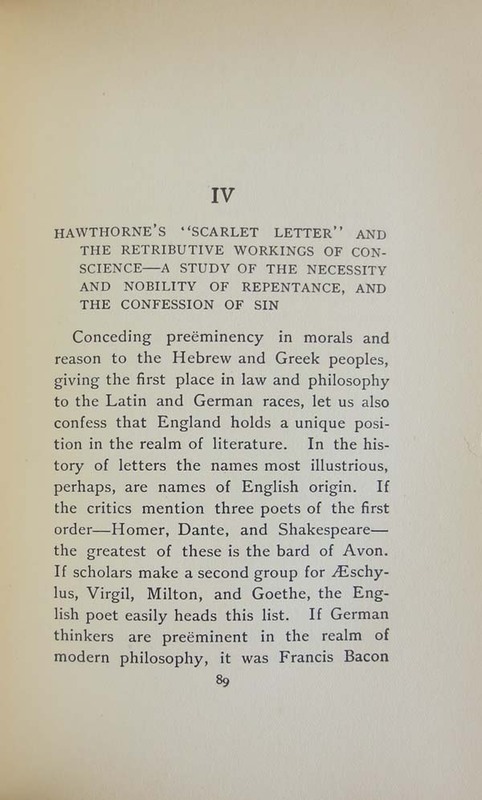Great Books as Life-Teachers
Newell Dwight Hillis.
Great Books as Life-Teachers; Studies of Character, Real and Ideal.
Chicago: Fleming H. Revell Company, 1899.
Call Number: PN 511 .H5
Stacks, Golda Meir Library
Fifty years after its appearance, The Scarlet Letter and Nathaniel Hawthorne were firmly ensconced in the canon of great American literature, partly on the merits of Hawthorne's place in the New England school. For Hillis, a minister, greatness was a moral delineation:
It seems important to remember that the great novelists are consciously or unconsciously teachers of morals, while the most fascinating essays and poems are essentially books of aspiration and spiritual culture. Lest the scope of these studies be misunderstood, it should be said that the author approaches these volumes from the viewpoint of a pastor, interested in literature as a help in religious life....these studies emphasize the importance of right thinking in order to right conduct and character, and the uses of great books as aids and incentives to the higher Christian life.
Hillis saw The Scarlet Letter not only as a psychological novel, but as a moral and religious commentary, titling his essay on The Scarlet Letter, "Conscience and the Retributive Workings of Justice. A Study of the Necessity and Nobility of Repentance, and the Confession of Sin."

